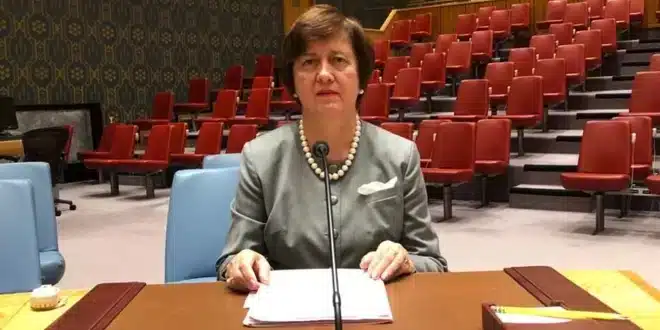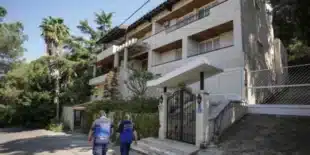During a recent closed consultation session with the Security Council, Joanna Wronecka, the United Nations Special Coordinator for Lebanon, along with Jean-Pierre Lacroix, the United Nations Under-Secretary-General for Peace Operations, provided an update on the progress of Security Council Resolution 1701 (2006). This session focused on the latest findings from United Nations Secretary-General Antonio Guterres regarding the resolution’s implementation, as detailed in a UN statement.
Wronecka expressed grave concerns over the escalating conflict across and beyond the Blue Line, highlighting the potential dangers these repeated breaches of resolution 1701 could pose, including increased risks of misunderstanding and further destabilization of an already volatile situation.
She emphasized the urgent need for prevention and de-escalation, calling on the international community to prioritize efforts to reinstate the cessation of hostilities. Wronecka pointed out that diplomatic efforts still have the potential to avert broader conflict and stressed the importance of addressing the impact of hostilities on civilians, reminding all involved parties of their duties under international humanitarian and human rights laws to protect civilian lives.
The Special Coordinator also noted the critical situation underscores the risks associated with the incomplete execution of resolution 1701, affecting Lebanon, Israel, and the region’s stability. She advocated for a shift beyond merely seeking to restore pre-October 8 calm towards initiating a political process that fully realizes resolution 1701, aiming to resolve the conflict’s root causes and ensure lasting stability.
Wronecka mentioned that several key obligations of resolution 1701 remain unmet, necessitating action from each party involved. She underscored the necessity of re-focusing on achieving a permanent ceasefire and a long-term resolution to the conflict.
Furthermore, Wronecka highlighted the essential role of a robust and well-supported Lebanese Armed Forces in fully implementing Resolution 1701 and encouraged further international aid to bolster the army’s capabilities, including its collaboration with UNIFIL.
She also highlighted the critical need to resolve Lebanon’s presidential vacuum to ensure the full operational capacity of the nation’s institutions amid the crisis.
Wronecka concluded by stressing the importance of the Security Council’s united support in preserving Lebanon’s sovereignty, territorial integrity, and political stability, reaffirming the United Nations’ ongoing commitment to supporting Lebanon and its people.


